Related Research Articles
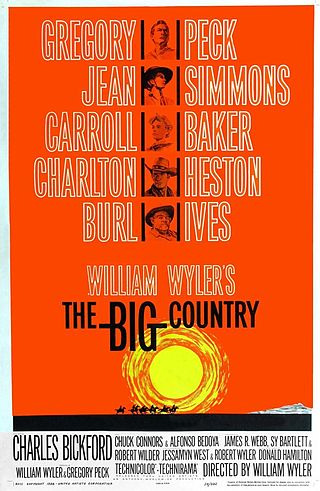
The Big Country is a 1958 American epic Western film directed by William Wyler, starring Gregory Peck, Jean Simmons, Carroll Baker, Charlton Heston, and Burl Ives. The supporting cast features Charles Bickford and Chuck Connors. Filmed in Technicolor and Technirama, the picture was based on the serialized magazine novel Ambush at Blanco Canyon by Donald Hamilton and was co-produced by Wyler and Peck. The opening title sequence was created by Saul Bass.

William Goldman was an American novelist, playwright, and screenwriter. He first came to prominence in the 1950s as a novelist before turning to screenwriting. Among other accolades, Goldman won two Academy Awards in both writing categories: first for Best Original Screenplay for Butch Cassidy and the Sundance Kid (1969) and then for Best Adapted Screenplay for All the President's Men (1976).

Eldred Gregory Peck was an American actor and one of the most popular film stars from the 1940s to the 1970s. In 1999, the American Film Institute named Peck the 12th-greatest male star of Classic Hollywood Cinema.
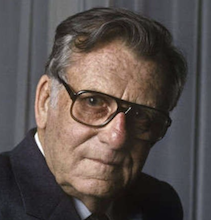
Morris Langlo West was an Australian novelist and playwright, best known for his novels The Devil's Advocate (1959), The Shoes of the Fisherman (1963) and The Clowns of God (1981). His books were published in 27 languages and sold more than 60 million copies worldwide. Each new book he wrote after he became an established writer sold more than one million copies.

The Fly is a 1958 American science fiction horror film and the first installment in The Fly film series. The film was produced and directed by Kurt Neumann and stars David Hedison, Patricia Owens, Vincent Price, and Herbert Marshall. The screenplay by James Clavell is based on the 1957 short story of the same name by George Langelaan.
Flaming Star is a 1960 American Western film starring Elvis Presley, Barbara Eden, and Steve Forrest, based on the book Flaming Lance (1958) by Clair Huffaker. Critics agreed that Presley gave one of his better acting performances as the mixed-blood "Pacer Burton", a dramatic role. The film was directed by Don Siegel and had a working title of Black Star.
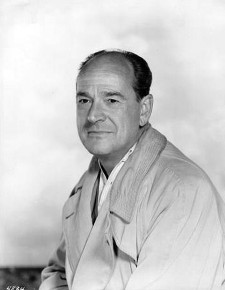
Anthony Mann was an American film director and stage actor. He came to prominence as a skilled director of film noir and Westerns, and for his historical epics.
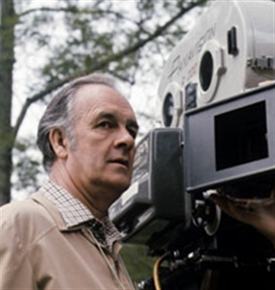
Donald Herman Sharp was an Australian film director.

Frankenstein Created Woman is a 1967 British Hammer horror film directed by Terence Fisher and starring Peter Cushing and Susan Denberg. The screenplay was by Anthony Hinds. It is the fourth film in Hammer's Frankenstein series.
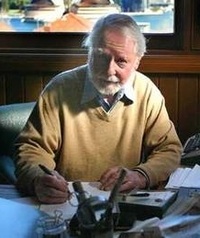
Jon Stephen Cleary was an Australian writer and novelist. He wrote numerous books, including The Sundowners (1951), a portrait of a rural family in the 1920s as they move from one job to the next, and The High Commissioner (1966), the first of a long series of popular detective stories featuring Sydney Police Inspector Scobie Malone. A number of Cleary's works have been the subject of film and television adaptations.
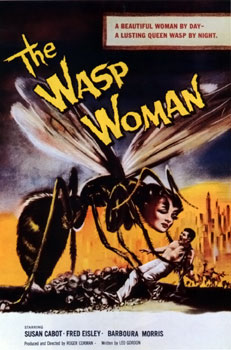
The Wasp Woman is a 1959 American independent science-fiction horror film produced and directed by Roger Corman. Filmed in black-and-white, it stars Susan Cabot, Anthony Eisley, Michael Mark, and Barboura Morris. The film was originally released by Filmgroup as a double feature with Beast from Haunted Cave. To pad out the film's running time when it was released to television two years later, a new prologue was added by director Jack Hill.
Henry Denker was an American novelist and playwright.
Frank Stanley Nugent was an American screenwriter, journalist, and film reviewer. He wrote 21 film scripts, 11 for director John Ford. He wrote almost a thousand reviews for The New York Times before leaving journalism for Hollywood. He was nominated for an Academy Award in 1953 and twice won the Writers Guild of America Award for Best Written American Comedy. The Writers Guild of America, West ranks his screenplay for The Searchers (1956) among the top 101 screenplays of all time.

Machine-Gun Kelly is a 1958 film noir directed by Roger Corman that chronicles the criminal activities of the real-life gangster George "Machine Gun" Kelly. Despite its small budget, the film received positive critical reviews.
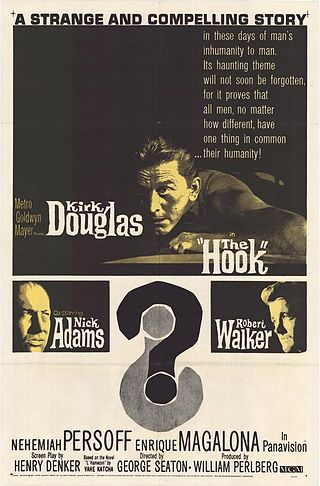
The Hook is a 1963 Korean War war film directed by George Seaton based on the 1957 novel L'Hameçon by Vahé Katcha. The film's title comes from the translation of the title of the original novel rather than the Battle of the Hook. The film was shot off Santa Catalina Island, California.
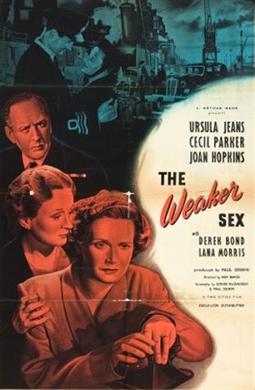
The Weaker Sex is a 1948 British drama film directed by Roy Ward Baker and starring Ursula Jeans, Cecil Parker and Joan Hopkins. It was written by Esther McCracken, Paul Soskin and Val Valentine based on McCracken's 1944 play No Medals.
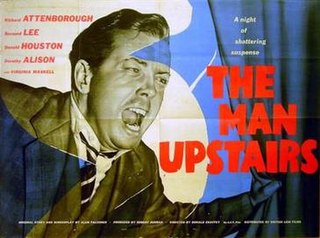
The Man Upstairs is a 1958 British psychological drama film directed by Don Chaffey and starring Richard Attenborough and Bernard Lee. The film was produced by Robert Dunbar for Act Films Ltd.
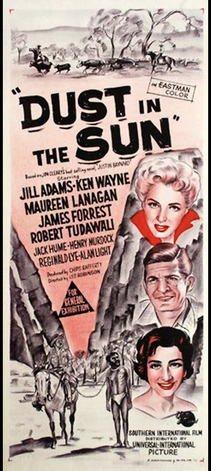
Dust in the Sun is a 1958 Eastmancolor Australian mystery film adapted from the 1955 novel Justin Bayard by Jon Cleary and produced by the team of Lee Robinson and Chips Rafferty. The film stars British actress Jill Adams, Ken Wayne and an Indigenous Australian actor Robert Tudawali as Emu Foot.
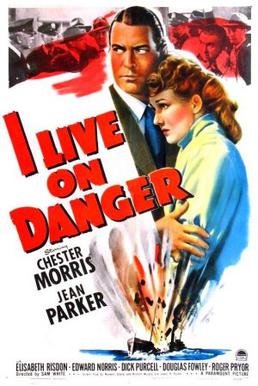
I Live on Danger is a 1942 film noir thriller film directed by Sam White and starring Chester Morris and Jean Parker.
The Naked Country is a 1985 Australian film. It was based on the 1957 novel by Morris West.
References
- ↑ "BOOK REVIEWS". The Beverley Times . Western Australia. 7 August 1958. p. 7 (Supplement). Retrieved 8 April 2020– via Trove.
- ↑ "Reviewed Briefly". The Bulletin. August 27, 1958. p. 59.
- ↑ FILMLAND EVENTS: Playwright Denker to Script for UI Los Angeles Times 28 Nov 1958: C12.
- ↑ Heath, Jane (30–31 May 1987). "Why Morris West feels just a little nervous: he wants to succeed with an 'old fashioned' movie". Australian. p. supp. 11.